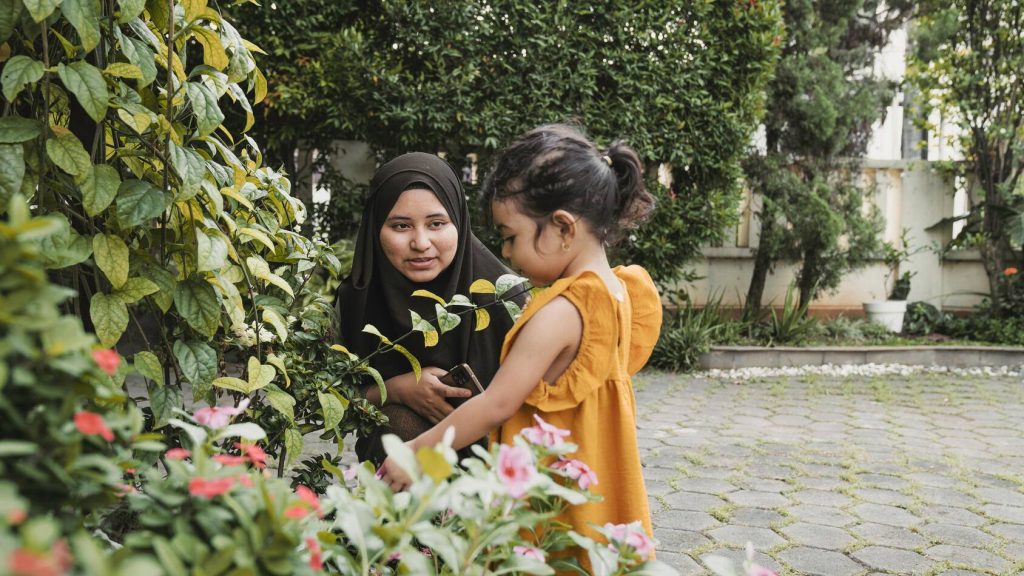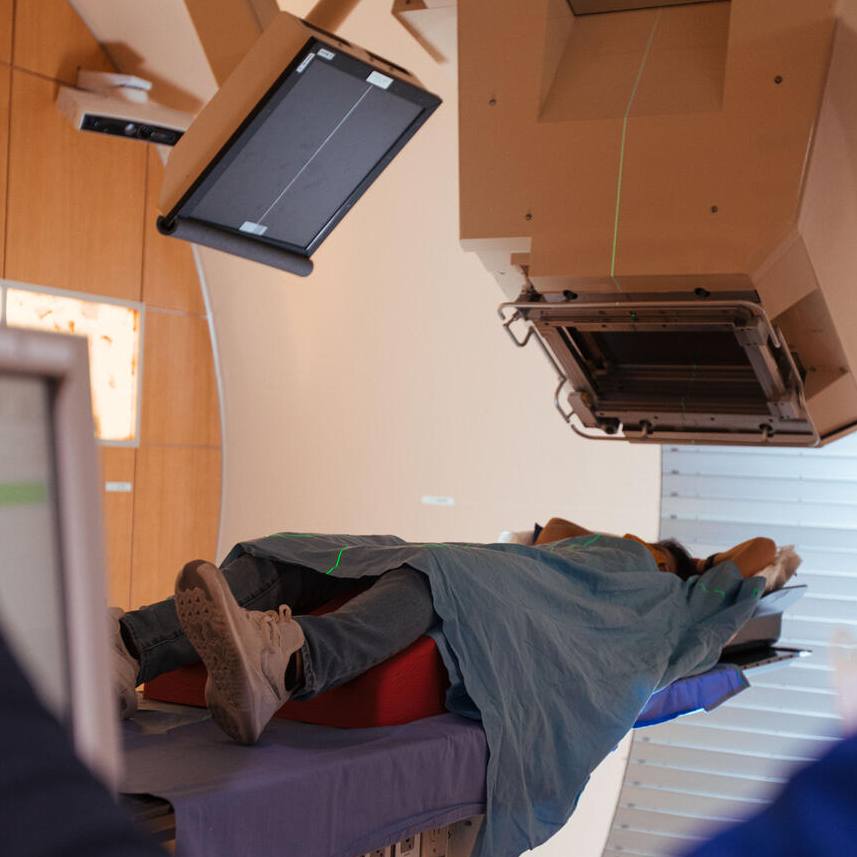-
Supporting your child’s development after a cancer diagnosis

The first few years of your child's life are a time of major growth and development in which the foundation for social, emotional and learning skills is laid. A cancer diagnosis and cancer treatment can disrupt the safe environment and routines that foster childhood development. This can cause distress, affect behavior, and temporarily delay or revert milestone progress.
Emily McTate, Ph.D., a Mayo Clinic pediatric psychologist who specializes in oncology, explains how proactively supporting your child's development through cancer and cancer treatment can help them continue to thrive and lessen their distress.
Cancer's effect on child development
Cancer and cancer treatment can affect your child's development, regardless of age. The impact on development varies depending on the age of the child. Some treatments, such as radiation, chemotherapy and other drugs, can have long-term effects on memory, learning, concentration and problem-solving, according to the National Cancer Institute.
Dr. McTate says, for toddlers, the demands and expectations of cancer treatment add a layer of stress and confusion to learning how to navigate the world. "Two- and 3-year-olds are supposed to be exploring their world and learning how to tolerate and regulate emotions. They're in the thick of autonomy exploration, so they want to be able to choose and do things themselves," says Dr. McTate.
However, a hospital environment can limit a child's newly discovered autonomy and opportunities to build confidence and skills, which can frustrate them. Behavior is often the biggest indicator of how a toddler is feeling. "We commonly see changes and disruptions in behavior, sleep and moods," says Dr. McTate. "We might see those things for older kids, too, but they're able to tell us how they're feeling as opposed to showing us through their behavior."
"We commonly see changes and disruptions in behavior, sleep and moods. We might see those things for older kids, too, but they're able to tell us how they're feeling as opposed to showing us through their behavior." EMILY MCTATE, PH.D.
Dr. McTate says some milestone regression is common for toddler-aged children, but it can still be distressing. "Potty training, for example, is a huge accomplishment and develops confidence in children, but it's common for kids to become incontinent during cancer treatment because they're getting tons of fluids to flush out chemotherapy. All of a sudden, they're back in a diaper. That's really hard when you're 3 years old, and you're so proud of yourself."
If your child is older, they might struggle with needing to be more dependent on you than is typical and missing out on time with peers or activities they enjoy. As they become more aware of their bodies, they also may start to feel insecure about the physical changes cancer and cancer treatment can cause.
Preparing for your child's changing needs
Partnering with a pediatric psychologist, a child life specialist and/or a social worker can help you prepare for potential disruptions to your child's development before cancer treatment begins and throughout care.
Dr. McTate says this is an important first step after diagnosis at Mayo Clinic. "All newly diagnosed patients meet with pediatric psychologists — within the first month or so — and we do a broad assessment and provide a lot of guidance. We want to know where your kiddo is in terms of development and get an understanding of their temperament."
Part of pediatric psychological care involves educating parents about providing developmentally appropriate information to children. "The more information kids have, the better they can cope with unpredictability and uncertainty — even if that information is really hard to hear," says Dr. McTate. "We want kids to trust that their doctors and parents are being honest with them about what is going to happen. That includes being honest about the fact that there are some things we don't know."
"The more information kids have, the better they can cope with unpredictability and uncertainty — even if that information is really hard to hear." EMILY MCTATE, PH.D.
As your child's main support system, you might need extra help to cope with this difficult time, so it's important to plan for your needs and know what to expect as a caregiver.
"Caregiver support is really important, and it looks different for every family," says Dr. McTate. "Some caregivers might have preexisting challenges with anxiety or mood that can worsen because of this huge life event. Some caregivers who haven't had concerns prior to this suddenly have challenges. In the context of a cancer diagnosis, the expected thing for a human brain to do is not feel normal."
Recreating normalcy during treatment
Not only are routines developmentally important for children, Dr. McTate says maintaining consistency and structure during cancer treatment can create a sense of normalcy and help your child cope. This includes maintaining regular expectations and discipline. "It's not going to look 'normal.' But I always teach families that we need some expectations and demands because we don't want kids to completely miss out on that skill building," she says.
Social interactions with peers are a key part of development for children and adolescents, but missing day care or school and limited time around siblings can reduce the opportunities for children to experience these connections.
If your child is school-aged or older, it's important they maintain connections with peers and friends as this can ease their transition back to daily life. "Sometimes we see kids develop amazing skills at talking to adults because they're so used to interfacing with nurses and their medical team, but they struggle to interact with kids their age," says Dr. McTate.
If your child is immunocompromised, allowing them in-person opportunities to connect might be more challenging. "We try to safely get kids access to social interaction and help them maintain connections," says Dr. McTate. If your care team agrees it is safe and your child feels well enough, depending on your child's age, they may be able to text, use social media, connect with friends through video calls or invite visitors.
Helping your child cope with difficult emotions
Children of all ages can experience difficult emotions as they navigate cancer, but the types of emotions and reasons behind them vary by age. "It's normal to see changes in behavior, changes in mood — those things are expected," says Dr. McTate. "What we find is that when folks engage in what we call active coping, they do much better."
If your child is older, helping them actively cope can mean giving them space to speak freely about how they feel, encouraging them to speak to a healthcare professional, family member or friend, and teaching them to reduce stress and anxiety.
Cognitive behavioral therapy, a kind of talk therapy, and biofeedback, a mind-body technique used to regulate stress and anxiety, are often used by cancer care teams to help children with cancer cope with fears, anxiety and other difficult emotions.
Explaining procedures and preparing children for possible pain also can help younger children cope with fear during treatment. This can involve working with their healthcare team to familiarize them with equipment and how it will be used to help them.
It's normal to be concerned about your child's emotional well-being and development after a cancer diagnosis. Dr. McTate emphasizes that while it's important to be vigilant, behavior changes, milestone regression and other concerns may be temporary challenges rather than long-term barriers. "For the most part, kids will jump back on that developmental trajectory."
Learn more
Learn more about childhood cancer and cancer survivorship.
Read these articles:
Also, consider these resources from the National Cancer Institute and the American Cancer Society:
- Children with Cancer: A Guide for Parents
- How to Cope When Your Child is Diagnosed with Cancer
- Late Effects of Childhood Cancer Treatment
- Support for Families: Childhood Cancer
This article first published on the Mayo Clinic Comprehensive Cancer Center blog.







